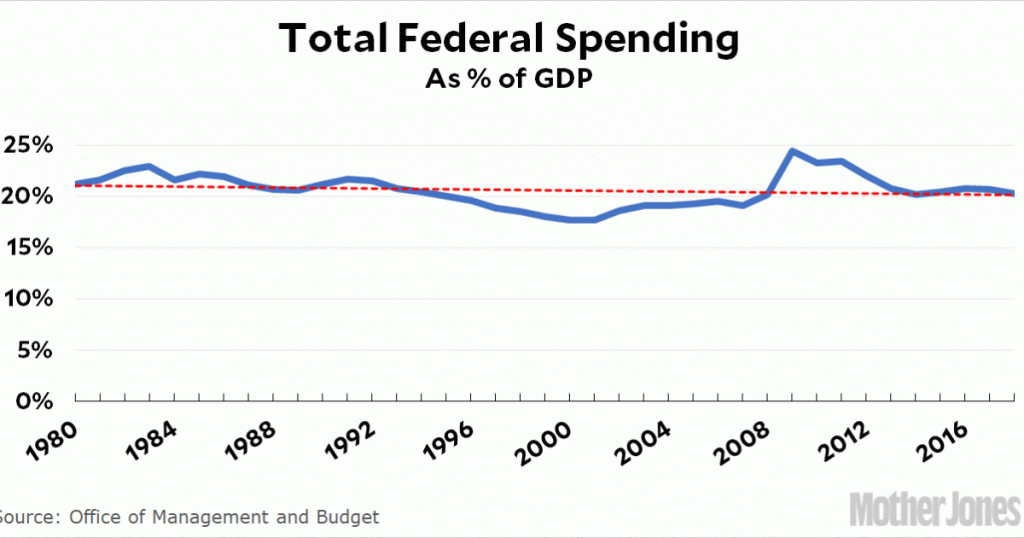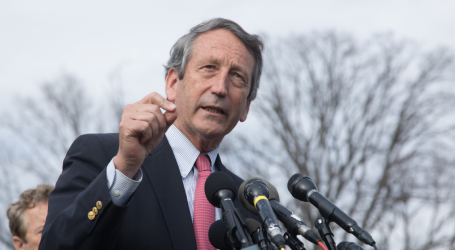The Budget Deficit Is All About Taxes, Not Spending
Yesterday I put up a chart showing the level of discretionary federal spending over the past 40 years. I did this because the news hook for it was the budget deal that Congress and President Trump agreed to, which was solely about discretionary spending levels for the next two years.
But naturally a lot of people thought this was just some kind of trick. What about all federal spending, including stuff like Medicare and Social Security, which we all know is spiraling out of control? Here it is:
The trendline is still slightly down. Roughly speaking, the federal government spent about 21 percent of GDP during the Reagan era, less than that during the Clinton era, and then stabilized at about 20 percent during the Obama era. There is simply nothing here that is out of control.
Now, these numbers are likely to go up as the baby boomers continue to retire, but that’s due to demographics, not profligate spending. We have a moral and practical commitment to fund Medicare and Social Security for future retirees, and we’ve known for decades that retiree spending will go up a few points of GDP in the 2020s and 2030s. But even at that, it’s unlikely to rise above 23 or 24 percent of GDP. It’s simply not a big problem.
Now, one thing we do have is spiraling budget deficits. Why? As you can see, it’s not because spending is out of control. It’s because Republicans are dedicated above all to cutting taxes on the rich and therefore refuse to fund the government properly. It’s all about taxes, not spending.





